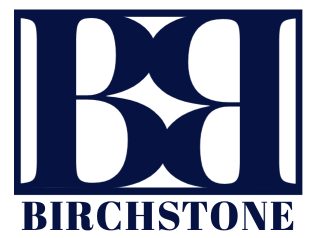Real estate equity, like a key to a treasure chest, holds the potential to unlock a myriad of financial opportunities. It has the power to transform financial situations, whether it be financing additional assets, paying off debts, or covering unexpected expenses.
However, the wise wielder of this key understands the importance of having a sturdy emergency fund to avoid the pitfalls of tapping into real estate equity.
In this article, we will explore the common uses, risks, and benefits of real estate equity, shedding light on its potential to provide stable and profitable financial opportunities.
Key Takeaways
- Having a robust emergency fund is important to avoid tapping into real estate equity, which can make one poorer.
- Real estate equity can be used for home improvements and maintenance if necessary.
- Using real estate equity to pay off credit card debt and switching to cash payments is advisable.
- Investing in multifamily real estate provides a stable and profitable long-term investment opportunity with favorable risk-adjusted returns.
What is Real Estate Equity?
Real estate equity refers to the value of a property that exceeds the outstanding mortgage or any other liens on the property. Understanding what real estate equity is can provide individuals with financial opportunities.
Building real estate equity can be achieved by making regular mortgage payments, which gradually reduce the loan balance and increase the equity. Additionally, property appreciation can also contribute to the growth of real estate equity.
Maximizing real estate equity growth involves strategies such as improving the property through renovations or upgrades, which can increase its value. Furthermore, paying down debt and avoiding excessive borrowing can help individuals maintain and increase their real estate equity.
By effectively managing and growing their real estate equity, individuals can unlock financial opportunities such as using it to finance additional assets or pay off debt.
Common Uses
Common uses for real estate equity include:
- Financing additional assets or liabilities
- Paying off debt
- Covering emergency expenses
- Making home improvements and maintenance
Using equity for home improvements: Owning a home comes with the responsibility of regular maintenance and potential upgrades. Real estate equity can be tapped into to fund these expenses if necessary. This can include renovations, repairs, or even adding additional features to enhance the property's value.
Using equity for debt consolidation: Credit card debt can quickly accumulate and become difficult to manage due to high interest rates. Real estate equity can be used to pay off credit card debt, allowing individuals to switch to cash payments and reduce their financial burden. Consolidating debt in this way can provide a more manageable payment plan and potentially save money on interest charges.
By utilizing real estate equity for these purposes, individuals can leverage their property to improve their financial situation and enhance the value of their investment.
Importance of Emergency Fund
One important aspect to consider is the significance of having a sufficient emergency fund in order to avoid the need to tap into real estate equity. It is recommended to have 3-6 months worth of salary in liquid reserves as an emergency fund.
A lack of emergency fund may lead to the need to tap into real estate equity, which can make one poorer. Having a robust emergency fund is important for maintaining financial stability.
By having an emergency fund in place, individuals can cover unexpected expenses without resorting to using their real estate equity. This ensures that the equity remains intact and can be used for other purposes such as financing more assets or paying off debt.
Overall, having a sufficient emergency fund is crucial for long-term financial stability and should be a priority for individuals who own real estate.
Risks and Benefits
Investors should carefully consider the potential risks and benefits associated with utilizing real estate equity as part of their overall financial strategy. Real estate equity can provide opportunities for wealth accumulation and financial growth, but it also carries certain risks that should be taken into account.
Pros and cons of using real estate equity as a long-term investment are summarized in the table below:
| Pros | Cons |
|---|---|
| Potential for property value appreciation | Short-term fluctuations in property value |
| Stable and predictable cash flow | Illiquidity of real estate investments |
| Diversification of investment portfolio | High upfront costs and transaction fees |
It is important to note that real estate equity investments require a long-term commitment and may not be suitable for investors seeking quick returns. Additionally, investors should be prepared to handle potential market downturns and be aware of the illiquid nature of real estate investments. Overall, real estate equity can offer significant long-term investment potential, but careful evaluation and consideration of the associated risks is essential.
Frequently Asked Questions
How can I calculate the amount of real estate equity I have in my property?
To calculate real estate equity, subtract the amount owed on the property from its current market value. Leveraging real estate equity offers benefits such as accessing funds for investment opportunities or paying off high-interest debt.
Can real estate equity be used as collateral for a loan?
Yes, real estate equity can be used as collateral for a loan. This allows individuals to leverage their equity for various purposes, such as business expansion or investment opportunities, providing them with additional financial resources.
Are there any tax implications when tapping into real estate equity?
There are potential tax implications when tapping into real estate equity. The specific tax consequences will depend on factors such as the purpose of the funds and the individual's tax situation. It is advisable to consult with a tax professional for personalized advice.
What are some alternative options for financing emergency expenses if I don't have a robust emergency fund?
Emergency loans and credit cards are alternative options for financing emergency expenses if you lack a robust emergency fund. Emergency loans provide immediate funds, while credit cards allow for convenient payment. However, both options come with potential drawbacks such as high interest rates and the risk of accumulating debt.
Are there any restrictions on using real estate equity for home improvements and maintenance?
Restrictions on using real estate equity for home improvements and maintenance are typically minimal. Leveraging real estate equity for rental property investments offers benefits such as increased property value, potential tax advantages, and ability to finance renovations.

